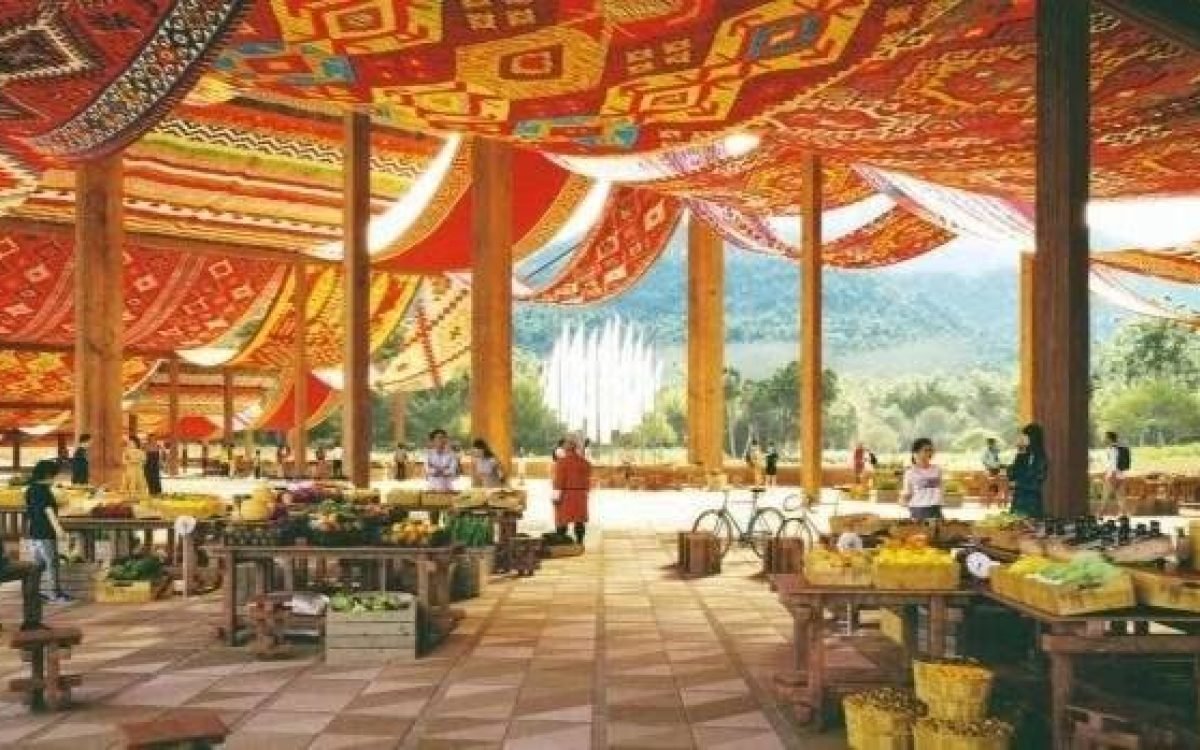In the wake of the pandemic, Bhutan stands at a pivotal moment of reinvention and rejuvenation. With the monarchy steering the course, the kingdom is embarking on a transformative journey, epitomized by the ambitious Mindfulness City project in Gelephu. Here’s a closer look at Bhutan’s bold vision and the emergence of Gelephu as a beacon of sustainability and wellbeing.
A New Beginning: Bhutan’s former Prime Minister, Lotay Tshering, emphasized the need to start afresh, echoing the sentiment of a nation poised for change. As Bhutan reevaluates its systems across sectors, from tourism to banking, corporate governance to judiciary, the stage is set for a comprehensive overhaul.
The Mindfulness City Project: At the heart of Bhutan’s reset lies the Mindfulness City project in Gelephu, a visionary initiative announced by King Jigme Khesar Namgyel Wangchuck. This special administrative region symbolizes Bhutan’s commitment to sustainability and holistic development, with India playing a pivotal role in its realization.
India-Bhutan Collaboration: India’s partnership is instrumental in actualizing the Mindfulness City project, with collaborative efforts extending from infrastructure development to economic cooperation. The strategic location of Gelephu, near India’s border, underscores Bhutan’s policy of looking south for economic and developmental synergies.
Development Strategy: Dorji Dhradhul, Director General of Bhutan’s tourism department, outlines the core pillars of the development strategy for Gelephu. The focus is on expanding the energy sector, enhancing physical and digital connectivity, and fostering skill development to harness the region’s potential fully.
Autonomy and Vision: As an economic hub, Gelephu’s special administrative region enjoys executive autonomy and legal independence, empowering it to formulate laws and policies aligned with its unique needs. The objective is to establish an economic corridor that extends across South-East Asia via India, facilitating trade and connectivity.
Futuristic Design and Sustainability: Designed by renowned firms like Bjarke Ingels Group (BIG) and supported by engineering and development experts, the Mindfulness City envisions a sustainable urban ecosystem. From an international airport to railway links, hydroelectric dams to educational spaces, the city embraces eco-conscious design principles.
Alignment with Gross National Happiness: Central to Bhutan’s ethos is the Gross National Happiness philosophy, which guides the selection of businesses invited to participate in the Mindfulness City project. Companies committed to wellbeing, sustainability, and compatibility with Bhutan’s values are welcomed, while activities like weapon manufacturing are discouraged.
Conclusion: The Gelephu Mindfulness City represents Bhutan’s audacious stride towards a future rooted in harmony, sustainability, and prosperity. With a steadfast commitment to its heritage and values, Bhutan invites the world to embark on a journey of collective wellbeing and shared prosperity in the embrace of the Himalayas.









